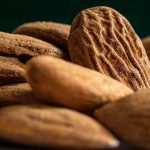
Coenzyme Q10, also known as ubiquinone or 2,3 dimethoxy-5 methyl-6-decaprenyl benzoquinone is a naturally occurring pro-vitamin which acts as a powerful antioxidant in cell metabolism. The mitochondria in particular rely on significant amounts of this coenzyme. Some reviews often confuse Q10 with enzymes themselves.
CoQ10 is an essential cofactor in mitochondrial oxidative phosphorylation, and is necessary for ATP production. It acts as a mobile electron carrier, transferring electrons from complex I to complex III or from complex II to complex III.
Whilst statins are good for reducing weight and improving cardiovascular performance they have the detrimental effect of depleting the body of Q10.
Cholesterol Lowering
- claimed to be suited for supplementation in patients with high cholesterol.
- people taking statins have low levels of coenzyme Q10.
Research needed to demonstrate role of coenzyme Q10 supplementation in those prescribed statins and showing high cholesterol levels.
- Supplementation in combination with L-carnitine claimed to help those patients who have suffered a heart attack.
Coenzyme Q10 And Cardiovascular Events
There is some benefit which has yet to be properly proven that supplementation with Q10 might help prevent or even treat a heart condition called atrial fibrillation. First though, what is this ?
Atrial fibrillation is an irregular heart condition where the upper chambers of the heart beat too fast and get out of synchronization with the lower chambers. In this situation blood clot can form and that means a risk of serious stroke. Arrhythmias of this nature have to be treated but there has been some evidence that it could ameliorated by taking coenzyme Q10. One study published in the Journal of Investigative Medicine appeared to suggest this was the case.
Low Levels Of Q10 Are Associated With Increased Tiredness And Fatigue
Supplementation with Coenzyme Q10 is claimed to improve physical performance and endurance and something called ‘subjective fatigue’. It helps many healthy people to engage fully in physical activity. A number of studies have examined the role of Q10 in overcoming fatigue. The review though notes that results are difficult to understand and interpret. One of the main reasons being that they cannot come up with a consensus definition for fatigue (Filler et al., 2014). The findings for professional athletes is similarly confused. A study on moderately trained healthy sportsmen found that taking coenzyme Q10 had no benefit in terms of their capability to do extensive exercise (Ostman et al., 2012).
Low levels of coenzyme Q10 are linked with other conditions including:
- heart disease and cardiovascular events
- neurodegenerative diseases
- mitochondrial diseases
- fibromyalgia
- diabetes
- cancer
- muscular diseases
This article contains links to our affiliate marketing partners. Please read our affiliate disclosure.
References
Filler, K., Lyon, D., Bennett, J., McCain, N., Elswick, R., Lukkahatai, N., & Saligan, L. N. (2014). Association of mitochondrial dysfunction and fatigue: a review of the literature. BBA Clinical, 1, pp. 12-23 (Article)
Östman, B., Sjödin, A., Michaëlsson, K., & Byberg, L. (2012). Coenzyme Q10 supplementation and exercise-induced oxidative stress in humans. Nutrition, 28(4), pp. 403-417


Leave a Reply